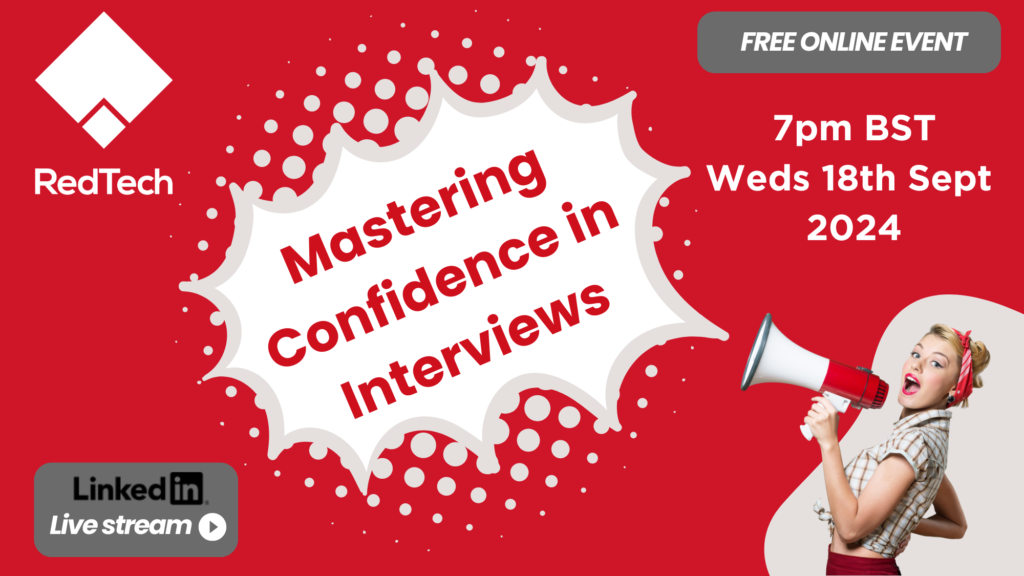
This week, we’re celebrating 5 years of RedTech! To mark this milestone, I thought I’d share some of the best and worst decisions we’ve made along the way—hopefully helpful to anyone starting their own business.
The best decisions we made:
Prioritising building an awesome supportive culture From day one, we focused on hiring hardworking, kind, and caring individuals to shape our culture. We intentionally steered away from the big egos some people might associate with recruitment (as this sure wasn’t me nor Rob either). Sure, we might have made money faster going the other route, but would we be one of the highest-rated recruitment agencies in the UK today? Probably not. Plus, I’d have had a lot more sleepless nights! Whatever industry you’re in, hire carefully in those early days!
Getting our logo and brand identity right early: Huge thanks to the brilliant David Comiskey for guiding us here. I can’t imagine the chaos (and expense) of trying to rebrand now, five years in!
Defining our USP: We started as a niche agency, specialising in sourcing top talent straight from academia. This focus helped us grow, and eventually, we expanded to include an Experienced Hires division—driven by candidates returning to us later in their careers. My advice is always think what is going to make your business differentiate from the competition.
Prioritising exceptional service: From the start, we decided another USP would be offering outstanding service to clients and candidates alike, ensuring recommendations would fuel our growth.
Engaging an accountant from the beginning: It might feel like an unnecessary cost at the start, but having professional financial expertise was invaluable. We’ve changed accountants three times as we’ve grown, but starting with one early saved us from making costly mistakes.
The worst decisions we made:
Trying to do too much ourselves: Even with experience, we underestimated the value of outsourcing. Lesson learned: if you’re stretched for time, outsourcing tasks—even ones you can do yourself—is worth it! This hit home after we started working with a marketing agency. We’d always intended to post more on social media, but it kept slipping to “tomorrow.” Now, having that extra help has made such a difference.
Ignoring burnout: By 2022, I was in a constant daze from overwork. I’ve since embraced meditation, breathing exercises, and a short lunchtime walk every day. These small habits have improved both my mental health and productivity. My advice: if you have a business partner or senior team member, take a proper holiday! Step away completely and only be contacted for true emergencies.
Neglecting our former business network: We are always so busy (this article alone has taken me three days to type in chunks) that we were rubbish at keeping up with the relationships we’d built in our wider business and recruitment network—former colleagues, managers, and other connections. If you’re starting out diairise check-in points with your network!
Skipping networking events: Tied to the above, we’ve also not attended enough events to build new business relationships. This will be a key focus for us in 2025! Networking is so vital and once you attend an event you remember the multitude of reasons they are important!
Struggling to manage and support remote workers effectively: I’ll admit, we made plenty of mistakes here as we only go into the office one day a week. Before COVID, I’d only managed in-office teams. Learning how to support people effectively when they’re not physically in front of you has been a big challenge. It’s easy for remote workers to feel isolated or unproductive without proper guidance. We’re still improving but have made great strides with clear plans, expectations, and three structured check-ins each day.
I understand why some leaders insist on returning to the office—it’s undeniably easier to manage and monitor when everyone is together. That said, we won’t be going that route. I personally love skipping the commute, and with the right setup, remote work can absolutely succeed – if you’re starting out a remote business put lots of time and thought into how this can be effective for your industry.









